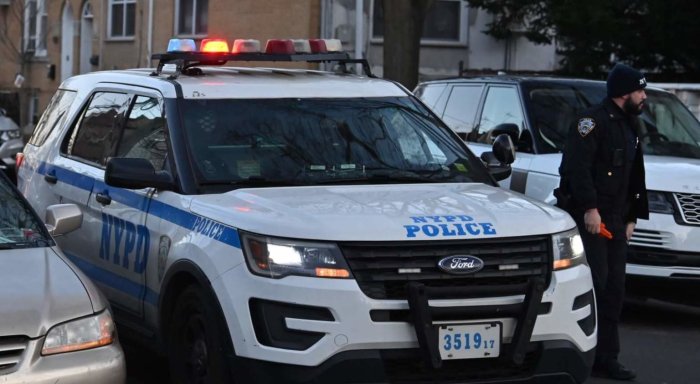By Dustin Brown
Gathered around a conference room table at Goodwill Industries in Astoria, five teenage employees sound more like polished executives than high school students.
Groomed through the city's Summer Youth Employment Program, which uses public funds to pay summer salaries for young workers, they performed so well last summer that Goodwill kept them on as counselors for their after-school program.
They're not sure what they want to do for a living, although most are sure that teaching is not for them – the kids are too disrespectful, they say.
Still, the experience has been invaluable. “It prepares you for any job that you would do,” said Niyesha Brooks, 18, of Astoria. “You always have to deal with people.”
So what do they want to do this summer? “Work,” all five say, practically in unison.
But they may not have that chance. Severe cuts in the city and state budgets have decimated the youth employment program, reducing the number of available jobs to one-fifth of what it was last year.
“One out of 10 applicants will receive a job this summer,” said Adjoa Gzifa, the director of the Family Institute at LaGuardia Community College. “So what do we do with the other nine? They have nowhere to go and nothing to do.”
The figures are stark. Where 3,020 youth in Queens found jobs through the program last year, only 606 slots are funded for this summer. The seven-week stint pays workers between 14 and 21 years old minimum wage for a four-day, six-hour-a-day work week, placing them in jobs at non-profit organizations and government agencies. The current minimum wage is $5.15 an hour.
Although last year the city and state each gave the program $15 million, the governor's budget proposal does not include any money for it. The city, meanwhile, has reduced its commitment by almost two-thirds, cutting it down to $5.5 million.
It is too soon to predict what will happen to the program this summer, by which point extensive political negotiations will likely change the content of the budgets on both the city and state levels.
“We're obviously going to try hard to lobby Albany for this money,” said Leah Yoon, the spokeswoman for the city Department of Employment, which runs the summer youth program.
State Assemblyman Michael Gianaris (D-Astoria) said funding for the program is a high priority for the legislature.
“We certainly hope to have it restored at least to the level it was funded in previous years,” Gianaris said.
But until then, it's a game of watching and waiting.
At Goodwill, senior vice president Karen Means recently picked up her stack of applications for summer workers, hoping to be allotted more than the 42 she is now slated to get. Goodwill is one of a few dozen agencies around the city that coordinate applications from the youth workers and assign them to community organizations that need summer staffers.
“It's horrendous. A lot of young people who depend on this money to help support families are not going to have jobs,” Means said. “This is the first work experience. As kids growing up, your first work experience kind of helps you set goals for the future as an adult.”
Local leaders anticipate the cuts will send a ripple effect throughout the community. Many day care centers and camps rely on the student workers as counselors, and the loss of their assistance may cripple those programs – meaning not only teens but their younger peers could lose out on summer activities.
“Some of them may have to close their doors,” Gzifa said. “If they don't close their doors, they'll have to raise their fees.”
With teenagers stuck with nothing to do, even the students themselves anticipate some of their peers will inevitably get in trouble.
“The crime rate is gonna go up,” said Nahree Haynes, 17, one of the Goodwill student workers.
Kendall Charter, the youth and family director at the Long Island City YMCA, says he plans to fill in the gap at his summer camp with teenage volunteers who would serve as CITs, or counselors in training. Whereas the YMCA would ordinarily get 60 youth workers over the summer, they are now expecting between 10 and 20.
But eliminating the salary eliminates much of the program's value in a way that goes well beyond the number on the paycheck. Haynes volunteered at the Jacob Riis Settlement House in Long Island City when he was 13 years old – too young to participate in the employment program – and the experience was not the same.
“You didn't really feel obligated and most of the time they really didn't have things for me to do,” he said of his volunteer position. “I would not show up, or show up late, and it didn't matter because I wasn't getting paid.”
Reach reporter Dustin Brown by e-mail at Timesledger@aol.com or call 718-229-0300, Ext. 154.

































